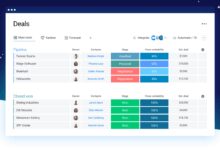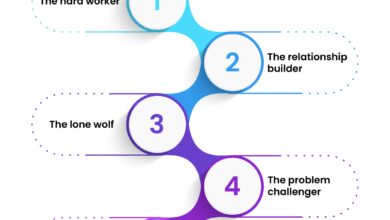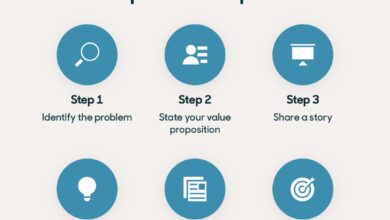Compare Sales CRM software for small business options: Compare Sales CRM Software for Small Business: 7 Best Options Revealed
Choosing the right CRM can transform your small business. Let’s compare sales CRM software for small business options that deliver real results without breaking the bank.
Why Compare Sales CRM Software for Small Business Options?

Small businesses operate with lean teams and tight budgets. Every tool you adopt must justify its cost with measurable returns. Customer Relationship Management (CRM) software is no exception. It’s not just about storing contact details—it’s about streamlining sales, improving customer service, and forecasting revenue with precision. That’s why it’s crucial to compare sales CRM software for small business options before making a decision.
Understanding CRM Basics
A CRM system is a centralized platform that manages all your interactions with current and potential customers. It tracks leads, automates follow-ups, logs communication history, and provides insights into sales performance. For small businesses, this means less time spent on manual data entry and more time closing deals.
- CRMs store customer data like names, emails, phone numbers, and purchase history.
- They automate repetitive tasks such as email follow-ups and appointment scheduling.
- They provide dashboards for tracking sales pipelines and team performance.
According to Salesforce’s State of Sales Report, high-performing sales teams are 2.2x more likely to use CRM data effectively than underperformers.
The Cost of Not Using a CRM
Without a CRM, small businesses often rely on spreadsheets, sticky notes, or memory to manage customer relationships. This leads to missed opportunities, duplicated efforts, and poor customer experiences. A study by Nucleus Research found that CRM systems deliver an average $8.71 return for every dollar spent.
Compare Sales CRM software for small business options – Compare Sales CRM software for small business options menjadi aspek penting yang dibahas di sini.
“Companies that implement CRM see a 29% increase in sales revenue within the first year.” — Nucleus Research
By failing to compare sales CRM software for small business options, you risk investing in a tool that doesn’t align with your workflow, leading to low adoption and wasted resources.
Key Features to Look for When You Compare Sales CRM Software for Small Business Options
Not all CRMs are created equal. When you compare sales CRM software for small business options, focus on features that directly impact your sales process, scalability, and ease of use. Here’s what matters most.
Sales Pipeline Management
A visual sales pipeline helps you track where each lead is in the buying journey. Look for drag-and-drop interfaces that let you move deals from ‘Prospect’ to ‘Closed-Won’ with ease. This transparency improves forecasting and team accountability.
- Customizable stages to match your sales process.
- Real-time updates across devices.
- Integration with email and calendar tools.
Tools like Zoho CRM offer AI-powered pipeline insights that predict deal closures based on historical data.
Automation and Workflow Tools
Automation reduces manual work and ensures consistency. Common automations include:
Compare Sales CRM software for small business options – Compare Sales CRM software for small business options menjadi aspek penting yang dibahas di sini.
- Sending follow-up emails after a lead fills out a form.
- Assigning leads to sales reps based on territory or workload.
- Updating deal stages when specific actions are completed.
For example, HubSpot CRM allows you to create workflows that trigger actions based on user behavior, such as visiting a pricing page.
Mobile Accessibility
Sales don’t happen only at a desk. A mobile-friendly CRM lets your team access customer data, update records, and log calls from anywhere. Look for native iOS and Android apps with offline capabilities.
- Offline mode for data entry without internet.
- Voice-to-text note-taking during client meetings.
- Push notifications for task reminders.
Mobile access increases productivity, especially for field sales teams or consultants meeting clients on-site.
Top 7 Sales CRM Software for Small Business Options to Compare
Now that you know what to look for, let’s dive into the top seven platforms you should compare when evaluating sales CRM software for small business options. Each offers unique strengths tailored to different business models and growth stages.
1. HubSpot CRM
HubSpot CRM is a favorite among small businesses for its intuitive interface and powerful free tier. It’s ideal for startups and growing teams that want to scale without switching platforms.
Compare Sales CRM software for small business options – Compare Sales CRM software for small business options menjadi aspek penting yang dibahas di sini.
- Free Forever Plan: Includes contact management, deal tracking, email integration, and live chat.
- Marketing Hub Integration: Syncs seamlessly with email campaigns and landing pages.
- Automation Workflows: Create multi-step sequences based on triggers.
HubSpot also offers educational resources and a vibrant community forum, making onboarding easier for non-technical users. Their CRM Academy provides free training modules.
2. Zoho CRM
Zoho CRM stands out for its affordability and deep customization. It’s perfect for small businesses with complex sales processes or those already using other Zoho apps like Books or Campaigns.
- AI Assistant (Zia): Predicts deal outcomes and suggests next steps.
- Custom Modules: Build your own data fields and workflows.
- Multichannel Communication: Manage calls, emails, and social media from one dashboard.
Zoho integrates with over 500 third-party apps via Zoho Marketplace, giving you flexibility as your business grows.
3. Salesforce Essentials
Salesforce, the industry leader, offers a simplified version called Essentials tailored for small businesses with up to 10 users. It brings enterprise-grade functionality to smaller teams.
- Role-Based Access: Control who sees what data.
- Email Integration with Gmail and Outlook: Log emails automatically.
- Pre-Built Dashboards: Monitor KPIs like conversion rates and sales cycle length.
While pricier than others, Salesforce Essentials ensures smooth migration to higher-tier Salesforce products as your company scales. Learn more at Salesforce Essentials Pricing.
Compare Sales CRM software for small business options – Compare Sales CRM software for small business options menjadi aspek penting yang dibahas di sini.
4. Pipedrive
Pipedrive is built by salespeople, for salespeople. Its visual pipeline-centric design makes it one of the most intuitive CRMs for managing deals.
- Drag-and-Drop Pipeline: Easily move deals through stages.
- Activity Timeline: See all interactions in chronological order.
- Goal Tracking: Set revenue targets and monitor progress.
Pipedrive excels in simplicity and focus. It’s ideal for solo entrepreneurs or small sales teams who want minimal distractions. Their mobile app is consistently rated above 4.5 stars on both iOS and Android.
5. Freshsales (by Freshworks)
Freshsales combines CRM functionality with built-in phone, email, and chat capabilities. It’s a great all-in-one solution for small businesses wanting unified communication tools.
- Smart Contact Matching: Automatically enriches lead data from LinkedIn and other sources.
- Visual Email Designer: Create professional templates without coding.
- AI-Based Lead Scoring: Prioritize hot leads based on engagement.
Freshsales’ AI engine, Freddy, helps automate follow-ups and predict which deals are most likely to close. Visit Freshworks CRM for a free trial.
6. Insightly
Insightly bridges the gap between CRM and project management. If your small business handles client projects or services, this could be your ideal fit.
Compare Sales CRM software for small business options – Compare Sales CRM software for small business options menjadi aspek penting yang dibahas di sini.
- Project & Task Management: Link deals to tasks and milestones.
- Workflow Automation: Trigger actions based on deadlines or status changes.
- Customer Lifecycle Tracking: From lead to repeat buyer.
It’s particularly useful for consulting firms, contractors, and agencies. Insightly integrates with G Suite, Microsoft 365, and Mailchimp.
7. Agile CRM
Agile CRM offers a robust feature set at a competitive price. It combines sales, marketing, and service tools in one platform, making it a strong contender when you compare sales CRM software for small business options.
- Free Plan for Up to 10 Users: Includes basic CRM, marketing automation, and helpdesk.
- Website Visitor Tracking: See which companies are browsing your site.
- Telephony Integration: Make and log calls directly from the CRM.
While the interface can feel cluttered compared to others, Agile CRM delivers exceptional value for budget-conscious businesses. Explore it at Agile CRM.
Pricing Comparison: How Much Should You Spend on Sales CRM Software?
When you compare sales CRM software for small business options, pricing is a critical factor. Most platforms offer tiered plans based on features and number of users. Let’s break down the average costs.
Free vs. Paid Plans
Several CRMs offer free plans that are surprisingly capable. HubSpot and Agile CRM, for instance, allow unlimited users on their free tiers—though with limited automation and reporting.
Compare Sales CRM software for small business options – Compare Sales CRM software for small business options menjadi aspek penting yang dibahas di sini.
- HubSpot Free: $0/month, includes contact & deal management.
- Agile CRM Free: $0/month, supports up to 10 users.
- Freshsales Free: $0/month, up to 2 users.
Paid plans typically start around $15–$25 per user per month and scale up to $50+ for advanced features like AI, forecasting, and custom reporting.
Hidden Costs to Watch For
Be aware of potential hidden costs when adopting a CRM:
- Onboarding and Training: Some vendors charge for setup assistance.
- Integration Fees: Third-party connectors may require additional subscriptions.
- Data Migration: Moving data from spreadsheets or legacy systems can be time-consuming or costly.
Always ask for a demo and test the free trial before committing. Most platforms offer 14–30 day trials with full access.
Integration Capabilities: Does the CRM Work With Your Existing Tools?
A CRM shouldn’t exist in isolation. When you compare sales CRM software for small business options, evaluate how well it integrates with your current tech stack.
Email and Calendar Sync
The ability to sync with Gmail, Outlook, or Google Calendar is non-negotiable. This allows automatic logging of emails, calls, and meetings, reducing manual entry.
Compare Sales CRM software for small business options – Compare Sales CRM software for small business options menjadi aspek penting yang dibahas di sini.
- HubSpot and Zoho offer two-way sync, meaning changes in your calendar reflect in the CRM and vice versa.
- Pipedrive’s Gmail extension lets you log emails with one click.
These integrations save hours per week and improve data accuracy.
Marketing and E-commerce Platforms
If you run digital ads or sell online, CRM integration with tools like Shopify, Mailchimp, or Facebook Ads is essential.
- Zoho CRM integrates with Shopify to sync customer orders and track post-purchase behavior.
- Freshsales connects with Mailchimp for automated email campaigns.
- Insightly links with WordPress to capture leads from contact forms.
Such integrations create a seamless flow from lead capture to conversion and retention.
API and Custom Development
For businesses with unique needs, API access allows custom integrations. Salesforce and Zoho offer robust APIs that developers can use to build tailored solutions.
- Use APIs to connect your CRM with accounting software like QuickBooks.
- Build custom reports or dashboards using external BI tools.
- Automate data sync between your CRM and internal databases.
While not every small business needs API access, it’s a valuable long-term consideration.
Compare Sales CRM software for small business options – Compare Sales CRM software for small business options menjadi aspek penting yang dibahas di sini.
User Experience and Adoption: Will Your Team Actually Use It?
The best CRM is useless if your team doesn’t adopt it. When you compare sales CRM software for small business options, prioritize ease of use and team buy-in.
Intuitive Interface Design
A cluttered or confusing interface leads to resistance. Look for clean layouts, logical navigation, and minimal clicks to perform common tasks.
- Pipedrive’s minimalist design focuses only on the sales pipeline.
- HubSpot uses color-coded cues and tooltips to guide new users.
- Freshsales offers a customizable homepage based on user roles.
During trials, involve your sales team in testing. Their feedback is invaluable.
Onboarding and Support Resources
Good onboarding reduces the learning curve. Check what each vendor offers:
- Video tutorials and knowledge bases.
- Live chat or phone support.
- Webinars and training sessions.
HubSpot and Zoho provide extensive free training. Salesforce offers paid onboarding services, which can add to initial costs.
Compare Sales CRM software for small business options – Compare Sales CRM software for small business options menjadi aspek penting yang dibahas di sini.
Mobile App Performance
A mobile app isn’t just a convenience—it’s a necessity. Test the app’s speed, reliability, and feature parity with the desktop version.
- Does it support offline mode?
- Can you add notes, attach files, and update deals on the go?
- Is voice-to-text available for quick logging?
Pipedrive and Freshsales have top-rated mobile apps that mirror desktop functionality closely.
Security and Data Privacy: Is Your Customer Data Safe?
When you compare sales CRM software for small business options, don’t overlook security. Your CRM holds sensitive customer data—emails, phone numbers, purchase history, and more.
Data Encryption and Compliance
Ensure the CRM uses industry-standard encryption (SSL/TLS) for data in transit and at rest. Look for compliance with regulations like:
- GDPR (General Data Protection Regulation)
- CCPA (California Consumer Privacy Act)
- ISO 27001 certification
HubSpot, Salesforce, and Zoho all comply with GDPR and offer data processing agreements (DPAs) upon request.
Compare Sales CRM software for small business options – Compare Sales CRM software for small business options menjadi aspek penting yang dibahas di sini.
User Access Controls
Limit access based on roles. For example, a sales rep shouldn’t see financial data, and a marketer shouldn’t edit deal values.
- Set permissions for viewing, editing, and deleting records.
- Enable two-factor authentication (2FA) for login security.
- Audit logs to track who made changes and when.
Salesforce and Insightly offer granular role-based access, while smaller CRMs like Pipedrive have simpler permission models.
Backup and Recovery
Ask about data backup frequency and recovery options. Most reputable CRMs perform daily backups and allow data export in CSV or JSON formats.
- Can you export all your data if you decide to switch platforms?
- Is there a self-service portal for data requests?
- How long is data retained after account cancellation?
Zoho and HubSpot allow full data exports at any time, giving you control over your information.
Final Tips for Choosing the Right CRM
After comparing sales CRM software for small business options, the final decision should align with your business goals, team size, and growth plans.
Compare Sales CRM software for small business options – Compare Sales CRM software for small business options menjadi aspek penting yang dibahas di sini.
Start with a Clear Goal
Define what you want to achieve: Is it faster lead response times? Better forecasting? Improved customer retention? Let this guide your choice.
Leverage Free Trials
Most CRMs offer 14–30 day free trials. Use this time to:
- Import sample data.
- Test key workflows (e.g., lead assignment, email automation).
- Train your team and gather feedback.
A hands-on trial reveals usability issues that specs alone won’t show.
Think Long-Term
Choose a CRM that can grow with you. Even if you only need basic features now, consider whether the platform supports advanced reporting, multi-channel sales, or international teams in the future.
“The best CRM isn’t the one with the most features—it’s the one your team actually uses every day.”
Adoption is the true measure of success. A simple, well-adopted CRM outperforms a complex, underused one.
Compare Sales CRM software for small business options – Compare Sales CRM software for small business options menjadi aspek penting yang dibahas di sini.
What is the best free CRM for small businesses?
HubSpot CRM is widely regarded as the best free CRM for small businesses. It offers unlimited users, contact and deal management, email tracking, and basic automation—all at no cost. It’s ideal for startups and solopreneurs who want powerful features without financial risk.
Can I switch CRMs later if I change my mind?
Yes, most CRM platforms allow data export in standard formats like CSV. However, migration can be time-consuming. It’s better to test thoroughly during free trials and involve your team in the decision to minimize future switches.
Do I need technical skills to use a CRM?
Compare Sales CRM software for small business options – Compare Sales CRM software for small business options menjadi aspek penting yang dibahas di sini.
No, modern CRMs are designed for non-technical users. Platforms like Pipedrive and HubSpot have intuitive interfaces, drag-and-drop builders, and guided onboarding. You can set up core functions without coding knowledge.
How many users can a small business CRM support?
Most small business CRMs support teams from 1 to 50 users. Some, like HubSpot and Zoho, scale to hundreds. Check per-user pricing and team collaboration features when planning for growth.
Which CRM integrates best with Gmail?
HubSpot and Zoho CRM offer seamless Gmail integration. Both allow you to log emails, schedule meetings, and sync contacts directly from your inbox. Pipedrive and Freshsales also provide strong Gmail extensions for sales teams.
Choosing the right CRM is a strategic decision that impacts your sales efficiency, customer relationships, and growth potential. By taking the time to compare sales CRM software for small business options, you ensure that your investment delivers real value. Focus on usability, essential features, integration, and long-term scalability. Test multiple platforms, involve your team, and prioritize adoption. The best CRM isn’t always the most expensive—it’s the one that fits your workflow and helps you close more deals.
Further Reading:







